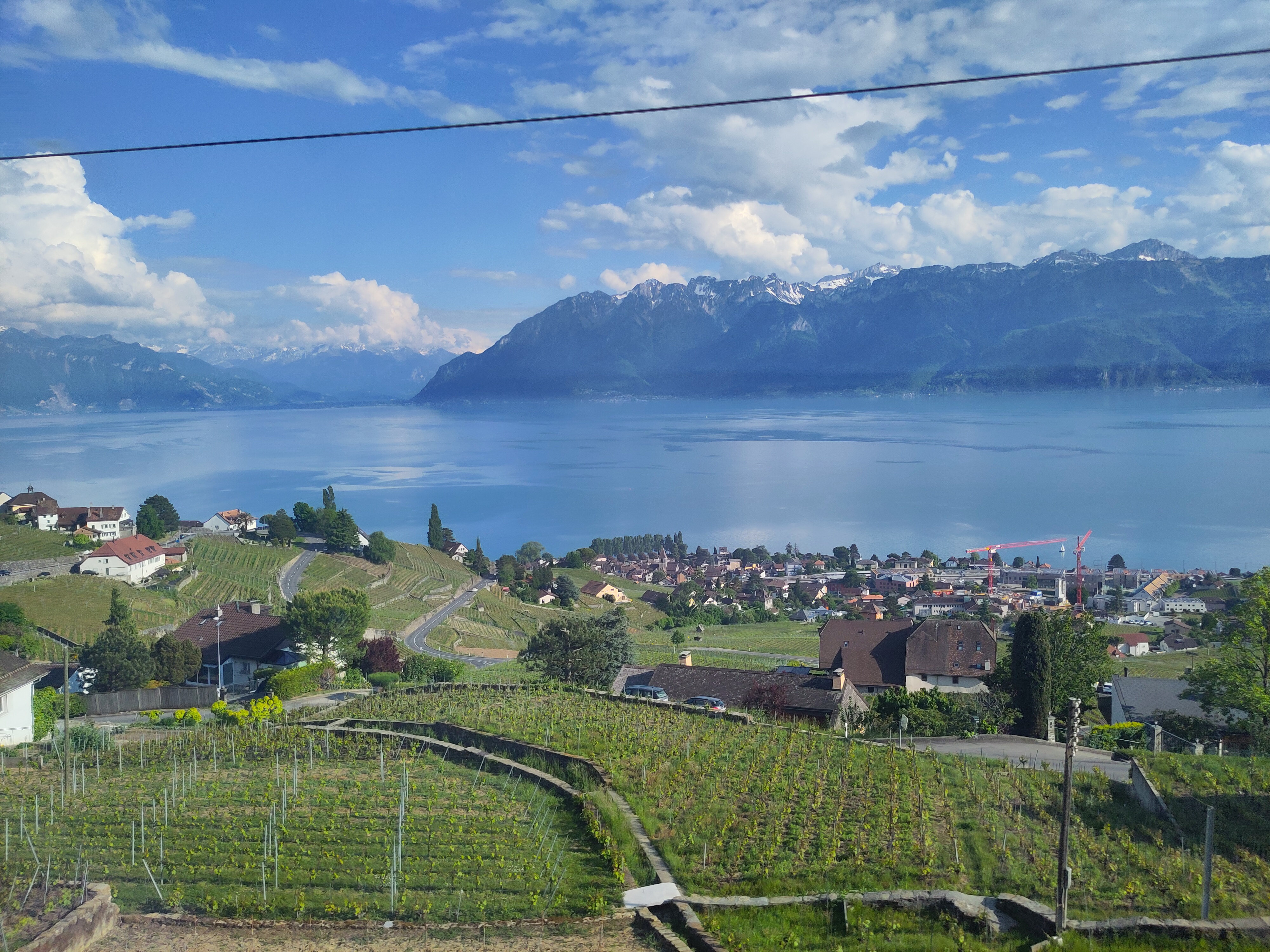On the Benefit of Using Trains Instead of Cars
On Sunday I took the car rather than the train. This allowed me to wake up slightly later, and to drive up to the meeting point within an hour. By train I would have had a half hour walk, followed by a two hour train ride. On the way back it was meant to take an hour and ten minutes but didn’t, because of a crash on the A1. I didn’t see any news about it so I don’t think it was a bad crash. It did however block the motorway. A drive that should have taken an hour then took two hours.

I like to take the train. It’s intuitive. It’s comfortable. It’s social. It’s relaxing. I took the car because I thought it would be more convenient. It was, but for the person that had to get back as fast as possible to catch a plane.
Without the car that person would have had to wait an extra half hour to an hour, and then another two hours on trains. By having the car I could drive spontaneously with most of the hiking group. The plan was to head to Nyon, to drop everyone off, in order for them to get to Geneva. In the end, due to the traffic jam we re-routed via Allaman, and then Rolle, and they took the train from Rolle. With a car you can leap frog segments of a train journey.
I think the person made it back with time to pack, shower, and get to the airport comfortably. I don’t know because there was no follow up. It doesn’t bother me in the least. The person seemed worried about getting home in town so I offered to drive her part of the way. If I had had that option on Saturday I probably would not have rushed for the train. I would have been happy to hitch a ride to Gland, and the train from there.
Travel time + Interval Between Trains
Saturday, and Sunday the journeys were two hours, but the train wait could be three hours. From the moment you finish a hike to the moment you get home can be three and a half hours, if I include my half hour walk.
If it wasn’t for the car crash and traffic jams then the car would have taken an hour ten rather than almost two hours. With the car crash, and traffic jam, with Sunday afternoon congestion the car was not faster, for me. It was faster for those that had the freedom to catch a train from a convenient train station. The moral, for me, is that on a Sunday afternoon, with congestion, trains are faster.
The paradox is that if a train is empty, or full, it goes at the same speed, but when an empty, or full, makes a huge difference. It makes sense to fill trains to capacity. It’s absurd to fill motorways to capacity. That’s why using trains when hiking is fantastic. It also provides us with the flexibility to do point to point hikes, rather than loops.
Some Exceptions
Nyon to Ste-Croix is convenient train. So is Nyon to Les Paccots, and Gruyères to Nyon. Nyon to Jaun too is very convenient. In contrast Nyon to Auberge communale de Pont-de-Nant, Route du Pont-de-Nant 10, 1880 Plans-sur-Bex is not convenient by train and bus, unless you start the hike at the bus stop, rather than the restaurant.
When I was looking at logistics from the Vue Des Alpes I saw that it makes sense to walk down to the nearby train station, four kilometres away. By doing this you have a train every hour, rather than every two to three hours.
Conclusion
If it wasn’t for a van catching fire near Céligny the motorway would have been fluid. It’s because of this accident that the advantage of taking the car was negated. Having said that, rush hour traffic on a Sunday evening is normal, so the gains you have in the morning are negated in the evening. This explains why the motorway, lake road and vineyard roads were blocked. This explains why it made sense to drop people off in Rolle, to catch their train. On Saturday I will almost certainly take the train as it’s a linear hike and simplifies logistics.